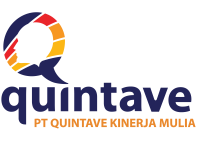In today’s competitive business landscape, cultivating management trainees who can effectively navigate complex challenges and lead their teams to success is crucial. At Quintave Kinerja Mulia, we believe that the foundation of effective management lies not just in knowledge but in the execution of problem-solving at varying levels of complexity. Drawing from Elliot Jaques’ Requisite Organization theory, we recognize that different managerial roles demand different time horizons and cognitive capabilities. Therefore, the following five skills are indispensable for any management trainee aspiring to thrive in a dynamic organization.
1. Strategic Thinking
Strategic thinking is more than just planning for the future—it’s about understanding the long-term impacts of decisions and aligning them with the organization’s goals. According to the Requisite Organization framework, this skill is vital for roles that operate at higher strata (Stratum IV and above), where the Time-Span of Discretion often extends beyond a year. Trainees must learn to balance short-term operational needs with long-term strategic objectives, ensuring their decisions contribute to the sustainable success of the organization.
Reference: Jaques, E. (1964). Time-Span Handbook.
2. Financial Acumen

Understanding the financial metrics that drive business decisions is essential for management at all levels. Financial acumen is not just about knowing how to balance the books; it’s about interpreting financial data to inform strategy and decision-making. In the context of the Prevue HR System, a trainee’s cognitive ability to process numerical information can be measured and matched with the financial responsibilities of their role. This ensures that trainees are not only capable but also equipped with the cognitive tools to handle complex financial scenarios.
Reference: Time-Span Measurement and Requisite Organization Concepts.
3. Effective Communication
Communication is the lifeblood of any organization. For management trainees, mastering the art of clear, concise, and persuasive communication is critical. This skill is particularly relevant in roles where the manager is responsible for aligning cross-functional teams and ensuring that all members are working towards the same objectives. The Prevue Assessment measures interpersonal skills to ensure that trainees can effectively lead and inspire their teams, which is especially important in Stratum II and III roles where direct managerial responsibilities are more prevalent.
Reference: Jaques, E. (1989). Requisite Organization.
4. Project Management
Project management skills are essential for ensuring that tasks are completed on time, within scope, and on budget. In Requisite Organization terms, effective project management is crucial in multiple-task roles, where the Time-Span of Discretion varies significantly depending on the complexity of the project. Management trainees must be adept at planning, executing, and closing projects, with a keen understanding of how to allocate resources effectively.
Reference: Jaques, E. (1991). Executive Leadership.
5. Analytical Thinking
In an increasingly data-driven world, the ability to analyse complex data and extract actionable insights is invaluable. Analytical thinking aligns closely with the Prevue HR System’s cognitive assessments, which evaluate a trainee’s ability to process and analyse information effectively. This skill is vital for roles in Stratum III and above, where decisions have far-reaching consequences, and a deep understanding of data is required to navigate the complexities of the business environment.
Reference: Requisite Organization Library, Professional Development in Requisite Organization.

Conclusion
For management trainees to succeed in a high-performance organization like Quintave Kinerja Mulia, they must develop these five core skills. By integrating strategic thinking, financial acumen, effective communication, project management, and analytical thinking into their skillset, they prepare themselves for the challenges of tomorrow. These skills, grounded in the principles of Requisite Organization and reinforced through the Prevue HR System, will ensure that they not only meet but exceed the expectations of their roles.





